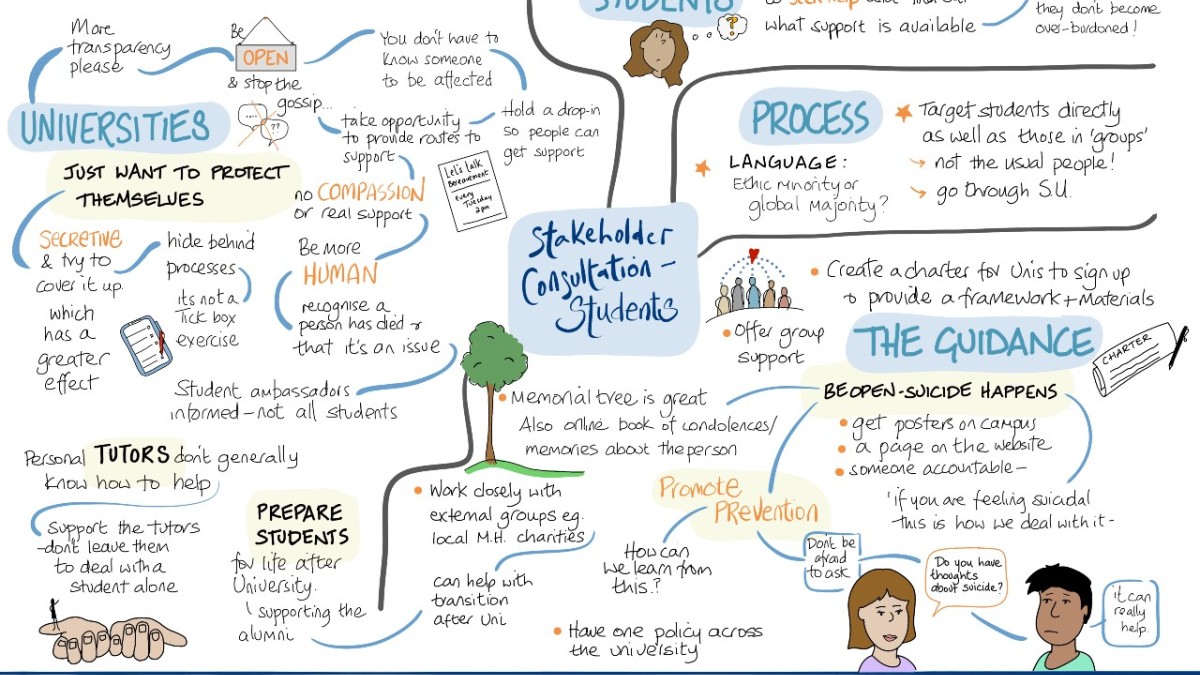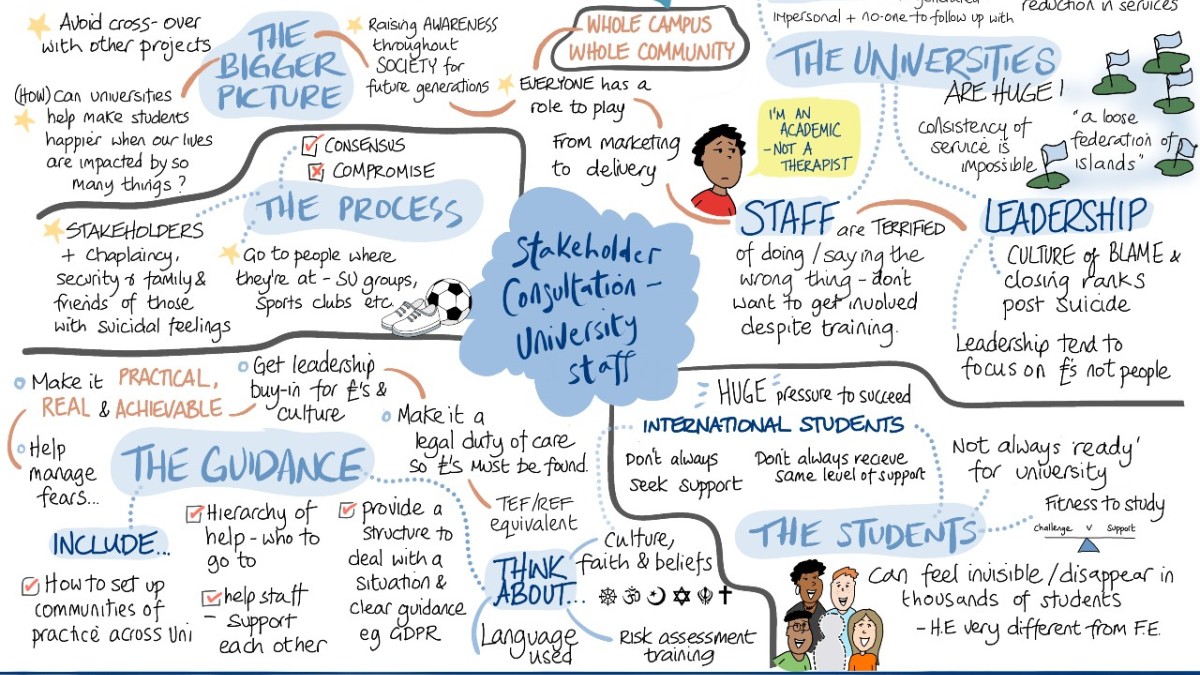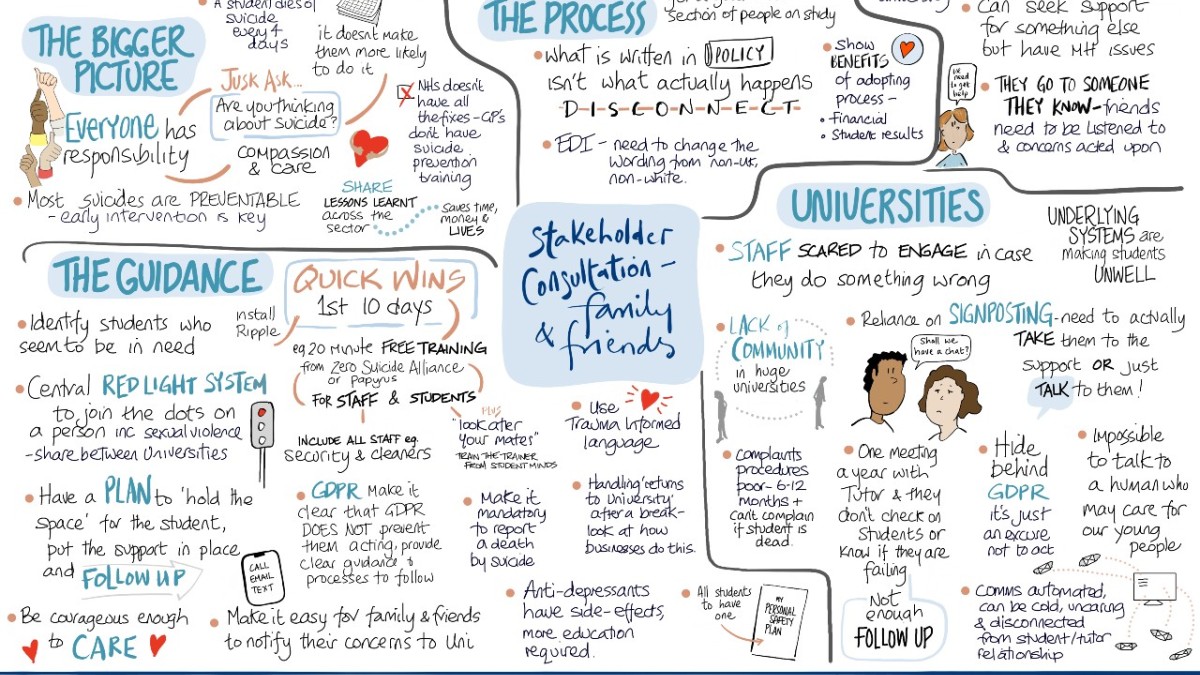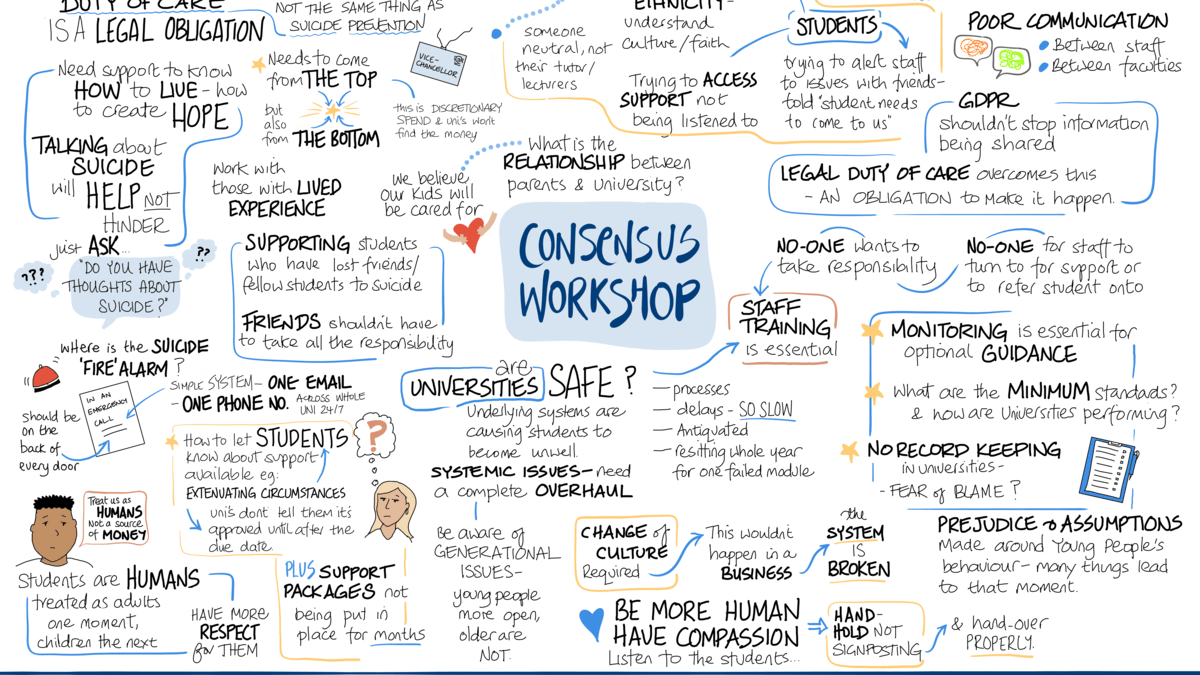
Who is responsible for making our universities suicide safe?
Start date
February 2024End date
June 2024Overview
Over the last decade, 1,330 Higher Education students have taken their own lives. In the three years preceding the COVID-19 pandemic, 319 students died by suicide – this is equivalent to one student dying every 4 days.
Creating a suicide-safe environment requires a multifaceted approach that addresses both individual and systemic factors contributing to mental health challenges among students. By working together, staff, students, parents and support organisations can help ensure that universities are supportive and conducive to the well-being of all students.
Dr Cassie Hazell at the University of Surrey was awarded ESRC IAA funding to deliver a Public and Patient Involvement (PPI) exercise with key stakeholders including University staff, affected families and mental health organisations, which through a variety of tangible outputs, will help inform the ongoing debate around how we make universities suicide safe, and lay the foundations for a larger research project in this area.
This project builds on Dr Hazell and her team's existing programme of research, funded by the Office for Students on the mental health of students, which has already attracted media attention and been mentioned in specific university policy documents and reports.
Team

Principal Investigator
Dr Cassie Hazell
Lecturer B
Biography
Dr Cassie Hazell is a lecturer in Clinical Psychology at the University of Surrey and Honorary Research Fellow at the University of Sussex. She completed her PhD at the University of Sussex on the topic of guided self-help for people distressed by hearing voices. She has since completed postdoctoral positions at the University of Sussex, Sussex Partnership NHS Foundation Trust, Brighton and Sussex Medical School, and the University of Oxford - all in the area of mental health and mostly working on clinical trials. Dr Cassie Hazell is the co-founder and chair of the international Early Career Hallucinations Research (ECHR) group. Her research interests include: implementation science, psychosis, hearing voices, cognitive behaviour therapy, increasing access to psychological therapies, wellbeing of mental health carers, mental health stigma, suicide, and student mental health.

Fiona Malpass
Mental Health Consultant

Dr Clio Berry
Senior Lecturer, Brighton and Sussex Medical School

Dr Jay-Marie Mackenzie
Reader, University of Westminster

Prof Jeremy Niven
Professor, University of Sussex

Dr Ian Marsh
Reader, Canterbury Christ Church University

Dr Jo Birkett
Lecturer, University of Westminster
Impact
The team’s overall goal was to produce a consensus statement to compliment the Suicide Safer guidelines with specific instruction on the roles and responsibilities of those in and around universities in supporting suicidal students.
Ahead of applying for a larger research grant to fully answer the question of who is responsible for making our universities suicide safe, it is imperative that they were able to engage in in-depth stakeholder involvement to explore the issues further from a lived experience perspective and understand what is important to all stakeholders when planning a wider research project.
The project also enabled consolidation of connections and networks with stakeholder organisations which will support the delivery of impact outcomes and outcomes from this ongoing work and future projects in related areas. The project has given stakeholders an opportunity to provide their views on an important and sensitive topic and connect with others who have a similar lived experience.
Stakeholder groups included:
- Bereaved family and friends who lost someone to suicide while that person was a student.
- Adults with lived experience of feeling suicidal and/or suicide attempts.
- Students with lived experience of mental health difficulties and/or distress.
- University staff that have supported suicidal students.
“We are immensely grateful to all those who have contributed to these stakeholder meetings and shared their experiences and stories with us. Student suicide is everyone’s responsibility and this project has enabled us to highlight ideas and perspectives that we had not considered before." Dr Cassie Hazell.




